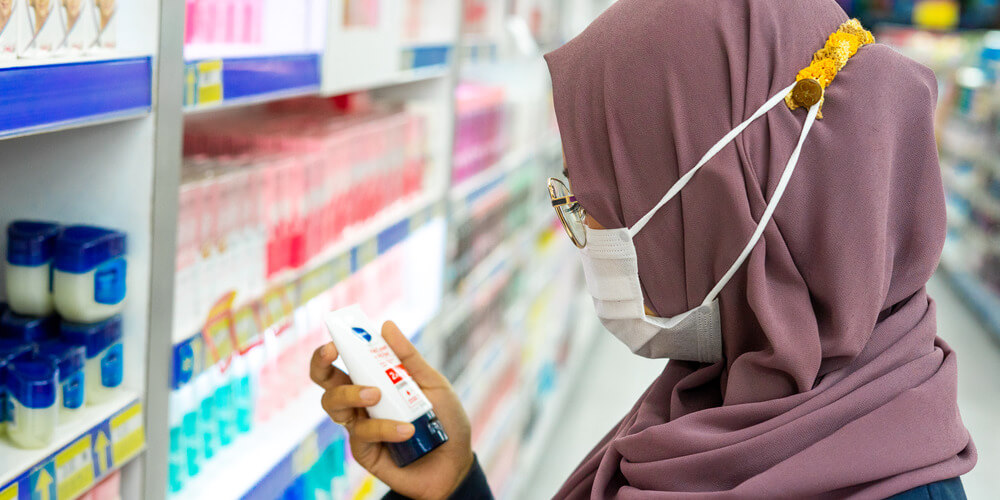The sector is slated to grow by nearly 8% a year until 2026, while 794 cosmetics companies have been halal certified since 2017.
Jakarta – Indonesia’s halal cosmetic industry is expected to outgrow its counterparts over the next five years if key challenges are addressed, said the Indonesia Cosmetic Association.
Indonesia’s halal cosmetic market is slated to be worth an estimated $4.19 billion by the end of 2021, but is still below the overall cosmetics market of $6.34 billion, according to Sancoyo Antarikso, Chairperson of Indonesia Cosmetic Association.
Indonesia is the world’s second largest market by Muslim spend (after India), at $4.49 billion, according to the Indonesia Halal Market Report 2021/2022.
The halal segment is expected to outpace its counterpart over the next five years due to rising consumer awareness and demand for halal certified cosmetics. A further key driver is the implementation of the Halal Law of 2014, which went into force in 2019, which requires mandatory halal certification of consumer goods and related services across the economy. Through a phased-in approach, cosmetics manufacturers have until 2026 to be fully halal certified.
“Over the next five years all cosmetic products distributed in the Indonesian market are obliged to be halal certified. It will have a huge impact on the growth of Indonesia’s halal cosmetic industry,” he said.
Sancoyo said that with rising awareness about halal certified cosmetic products, combined with an compound annual growth rate (CAGR) of 7.52% over the next five years and e-commerce sales to contribute an estimated 13.3% of total sales, halal cosmetics are expected to outpace non-halal cosmetics. The Indonesia Halal Market Report 2021/2022 estimates growth of 12.65% by 2025, to $7.59 billion.
“From my personal observation when I visit retail stores, halal cosmetics like personal care, skin care and fragrance, especially halal personal care, already outweigh its counterpart,” Sancoyo added.
Certain obstacles are holding back the certificiation of cosmetic products. Firstly, most raw materials are imported, with only around a quarter halal certified. Secondly, as manufacturers source new and innovative ingredients for products, the certification authority, LPPOM MUI, needs to enlarge its list of ingredients due to the number of questionable materials that have emerged in recent years.
Muti Arintawati, executive director at LPPOM MUI, told Salaam Gateway that the number of halal certified companies and cosmetic products has increased over the last five years.
In 2017, there were only 64 halal certified companies. In 2018, 129 companies were certified, and in 2019, 162 companies. This figure jumped to 240 companies certified in 2020, and 199 companies in 2021. Between 2017 and 2021, 794 companies were halal certified.
In terms of products, in 2017 there were only 3,341 halal certified products. This figure roughly quadrupled to 12,675 certified in 2018, and to 14,999 halal certified products in 2019. In 2020, 26,197 products were certified, and 18,173 in 2021. Between 2017 and 2021, 75,385 products were halal certified.
Arintawati said that there are ongoing discussions as to whether non-halal cosmetics should be separated from halal cosmetic products to prevent cross-contamination when displayed in retail stores after the mandatory deadline on 17 October, 2026. Non-halal cosmetics are expected to be allowed to be traded as long as they include information about their non-halal certification status.
In addition to mandatory halal certification, cosmetics producers must obtain distribution permits and meet the requirements of Indonesia’s Food and Drug Administration, known as BPOM.
So far in 2021, 78,733 new distribution permits were issued by BPOM, up by 22.6% on 2020.
© SalaamGateway.com 2021 All Rights Reserved

